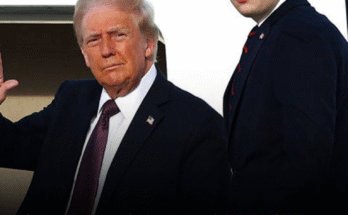Federal Crackdown Intensifies: A Nation on Alert
In recent weeks, the U.S. federal government has significantly intensified its crackdown on a range of domestic issues, including immigration enforcement, organized crime, and extremist activity. The move comes amid growing political pressure and public concern over national security, border control, and civil unrest in various regions of the country.
At the center of this renewed federal action is a coordinated effort by multiple agencies, including the FBI, Homeland Security, the Department of Justice, and ICE. Their focus has been sharpened by rising tensions at the U.S.–Mexico border, where illegal crossings have surged in recent months. Officials say that new policies are being implemented to streamline deportations, increase surveillance, and tighten control over asylum claims. In Texas and Arizona, border patrol agents have received reinforcements, and temporary detention centers have been reopened to handle the influx.
Simultaneously, the DOJ has ramped up its operations targeting organized crime networks, particularly those involved in fentanyl trafficking, weapons smuggling, and cybercrime. Last week alone, over 130 people were arrested in a multi-state sting operation known as “Operation Clean Sweep,” which netted millions in illicit drugs, firearms, and digital assets. Attorney General Merrick Garland stated that “no criminal network, no matter how deep its roots or how sophisticated its methods, will be beyond our reach.”
However, the crackdown isn’t limited to crime and immigration. Federal authorities are also monitoring domestic extremist groups with greater urgency, especially in the wake of rising threats against lawmakers and government buildings. New counterterrorism task forces have been deployed in several states to monitor hate groups, radical militias, and lone-wolf threats. According to the Department of Homeland Security, social media surveillance and community reporting have played critical roles in disrupting several planned attacks.
Critics, however, argue that the government’s broad approach may risk infringing on civil liberties. Civil rights advocates have raised alarms about increased surveillance, warrantless searches, and the potential for racial profiling. “We cannot allow the response to real security challenges to become a pretext for eroding constitutional rights,” said a spokesperson for the ACLU. Others fear the growing power of federal agencies and the militarization of local law enforcement under federal funding programs.
President Biden has defended the actions, saying, “Protecting the American people is my top priority. We will act decisively and responsibly to uphold the law, secure our borders, and ensure that every community is safe.”
As the situation evolves, the balance between national security and individual freedoms remains under the microscope. The coming weeks are expected to bring more enforcement actions, policy announcements, and possibly legal challenges. With tensions high and public opinion deeply divided, America finds itself navigating yet another defining chapter in its ongoing struggle between safety and liberty.
